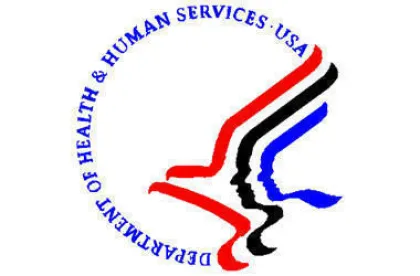On February 6, 2019, the Office of the Inspector General of the U.S. Department of Health and Human Services (the “OIG”) published in the Federal Register a proposed rule (the “Proposed Rule”) that, if made final in its current form, would (i) amend the Anti-kickback Statute (“AKS”) Discount Safe Harbor to explicitly exclude discounts relating to price reductions or other remuneration offered by a pharmaceutical manufacturer to a Medicare Part D plan sponsor (“Plan Sponsor”), a Medicaid managed care organization (“MCO”), and/or a pharmacy benefit manager (“PBM”) under contract with such a sponsor or organization; and (ii) add two new safe harbors: a “Discounts Offered at the Point-of-Sale” safe harbor (“Point of Sale Safe Harbor”) and a PBM Fee Arrangement Safe Harbor (“PBM Safe Harbor”).
The Proposed Rule is the latest salvo by the Trump Administration against what the President has stated – such statements include those made most recently by the President in the State of the Union address on February 5, 2019 – is one of the most significant healthcare challenges faced by the public today: inflated prescription drug list prices and exorbitant out-of-pocket costs experienced by patients when purchasing prescribed drugs. If one were asked to identify the specific targets of the Proposed Rule, the likely contenders would be the drug manufacturers and PBMs.
As described by Alex Azar, Secretary of the U.S. Department of Health and Human Services, in the Trump Administration’s May 2018 American Patients First plan, “when it comes to the cost of prescription drugs, our healthcare system faces four major challenges: high list prices for drugs; seniors and government programs overpaying for drugs due to lack of the latest negotiation tools; high and rising out-of-pocket costs for consumers; and foreign governments free-riding off of American investment in innovation.” As mentioned above, the Proposed Rule is primarily focused on two of these challenges – high list prices and rising out-of-pocket costs.
Transparency.
In the Preamble to the Proposed Rule, the OIG observes that current pharmaceutical manufacturer discount practices are not transparent. The OIG notes that “[i]n some or many instances, plan sponsors under Medicare Part D and Medicaid MCOs have limited information about the percentage of rebates passed on to them and the percentage retained by their PBMs. The terms of rebate agreements manufacturers negotiate with PBMs may be treated as highly proprietary and, in many instances, may be unavailable to the plans.” In turn, the OIG concludes that “this lack of transparency creates significant compliance risks for Medicaid MCOs and Medicare Part D plan sponsors who are obligated to “disclose, report, and otherwise account accurately for rebates where required by program rules (and potentially, under the discount safe harbor).” By impeding such disclosures, the OIG concludes that the lack of transparency, “creates a potential program integrity vulnerability because compliance with program rules may be more difficult to verify.
The Safe Harbor Regulations – Revisions and Additions.
In addition to the aims of improving transparency and ameliorating the above-described compliance risks identified by the OIG, the Proposed Rule is intended to lower drug list prices and consumer out-of-pocket expenses by providing safe harbor protection to those arrangements which pass the savings of a manufacturer discount along to consumers. To accomplish this feat, the Proposed Rule revises the Discount Safe Harbor and proposes two new safe harbors – the Point of Sale Safe Harbor and the PBM Safe Harbor.
The Discount Safe Harbor.
As described in the Preamble to the Proposed Rule, the Proposed Rule, if finalized in its current form, would amend the Discount Safe Harbor so that it would no longer protect price reductions from manufacturers to Plan Sponsors or Medicaid MCOs, either directly or through PBMs acting under contract with Plan Sponsors or Medicaid MCOs, unless the reduction in price is required by law. In addition, the Discount Safe Harbor amendment would define the term, “plan sponsor under Medicare Part D” to include both sponsors of Medicare prescription drug plans and sponsors of Medicare Advantage prescription drug plans.
According to the OIG, the Discount Safe Harbor amendments are not intended to interfere with manufacturer discounts on products that are offered to entities such as wholesalers, hospitals and providers – i.e., not discounts offered to individuals to purchase prescribed pharmaceuticals. Moreover, the OIG writes that it does not intend for the proposed amendment to have any impact on existing protections for value-based arrangements between manufacturers and Plan Sponsors.
Point of Sale Safe Harbor.
Subject to the satisfaction of certain enumerated criteria, the proposed Point of Sale Safe Harbor is intended to protect arrangements that include point-of-sale price reductions offered by manufacturers on certain pharmaceutical products that are payable under Medicare Part D or by Medicaid MCOs. Such criteria include the following (i) any price reduction arrangement between a manufacturer and a Plan Sponsor or a PBM be set in advance, (ii) in order to be considered a “rebate” subject to safe harbor protection, a manufacturer price reduction arrangement must allow a dispensing pharmacy to receive the full value of the price reduction through a chargeback or a series of chargebacks or as otherwise required by law; and (iii) the manufacturer’s price reduction that has been passed to the dispensing pharmacy must be entirely passed through to consumers at the time that they receive their medications from the dispensing pharmacy – i.e., at the point of sale.
PBM Safe Harbor.
The PBM Safe Harbor is intended to protect certain fixed fee arrangements between manufacturers and PBMs, so long as such arrangements meet certain criteria. Such criteria include that the fee arrangement is disclosed in writing to each applicable health plan, and the fee arrangement “relate[s] in some way” to the PBM’s arrangements with health plans to provide pharmacy benefit management services.
The Potential Impact.
If the Proposed Rule goes into effect, PBMs may be more vulnerable to AKS enforcement actions for discounts that they negotiate with drug manufacturers. In addition, the Pharmaceutical Care Management Association has expressed concern that eliminating rebates could increase drug prices and force Medicare beneficiaries to pay higher premiums and out-of-pocket costs in order to access the prescription drugs they need.
The OIG is currently seeking feedback on the Proposed Rule. Comments are due by April 8, 2019. Once the rule is finalized, the OIG plans to implement the new safe harbors within 60 days of finalization and to amend the existing Discount Safe Harbor as of January 1, 2020.




 />i
/>i

